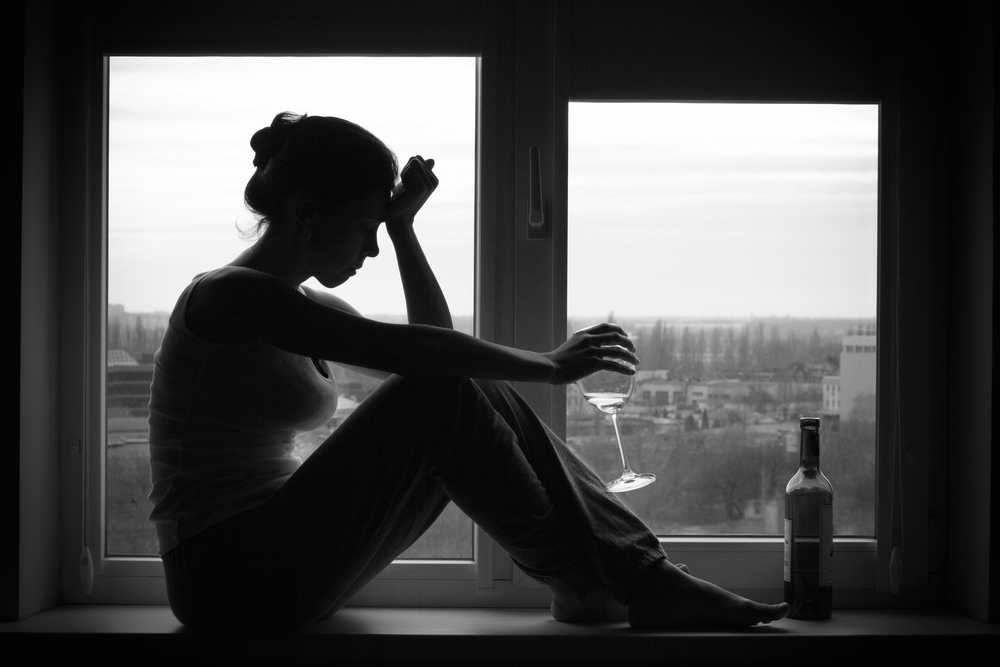It feels like ages since I’ve had my feet fully beneath me. Even when my personal and professional lives are steady, I can’t help but grieve for the world.
2020 has sucked for all of us. As we enter what will likely be a difficult winter as well as a polarizing and contested election in the US, I’m afraid that things are going to get worse before they get better (but remember: they will get better).
When you know that the path ahead is difficult, it’s important to slow down and reflect on how you’re going to approach it. Think of it as studying for a test or preparing for a big meeting.
In this article, I aim to help you develop a game plan for tough times. We’ll reflect on seven questions to help kindle light in darkness. Along the way I’ll share elements of my own plan. We’ll also spend time discussing a philosophy of dealing with pain that enables you to approach it with increased skill and care.
Five questions to help fight off the darkness (and my personal answers)

1) What 1-3 things have the biggest positive impact on your mental health? Missing from the popular conversation around mental health and personal development is the plain reality that some activities have a greater impact on our well-being than others.
This is tricky though, because the specifics vary from person to person and evolve over time. So we need to slow down and identify them now. For me, the three biggest factors are meditation, sleep, and exercise. A few years ago, I would have said therapy, diet, and exercise..
Other common actions that people report improving their mental health:
- Gratitude
- Prayer
- Time outdoors
- Journaling
- Therapy
- Time with loved ones (more on this in a moment)
- A structured schedule for the day (even if it’s just structure you create for yourself)
- A clean/organized environment
- A regular sleep schedule
- High quality relaxation (reading, games, baking, puzzles, watching movies, dancing, yoga, scrapbooking, woodwork, etc.)
The goal here isn’t to identify every variable that goes into having a good day. The goal is to find a few things that are disproportionately important.
2) Once you’ve identified the activities that are most important for you, how are you going to ensure that you do them regularly? There are times when it feels like taking good care of ourselves is especially difficult. One of the shittiest mind quirks is that these are often the times when we need to take better care of ourselves. It’s important to think about how we can tip the scales in our favor to make these things easier. Personally, I’ve made meditation, allowing room for 8 hours of sleep, and exercise a habit. However, to make it even easier I’ve begun doing the following:
- I only allow myself to turn my phone on after I’ve meditated.
- After I complete a workout, I text my buddy, M*. He texts me, too. Specifically, we send a GIF of Arnold Schwarzenegger back and forth after we’ve completed our workouts. It’s enough to hold us both accountable to our self-care routines.
- I have an alarm scheduled on my computer and phone that goes off at 10pm, telling me it’s time to wind down.
Now is the time to figure out how you’re going to do the things that most serve you. Will you text a friend to help hold one another accountable? Will you schedule activities on your calendar? Will you create incentives for yourself to enhance your motivation? Will you inflict punishments if you fail to keep your commitments to yourself (I’m not wild about this strategy, but it works for some people). There’s no right or wrong answers here, but it is important to make sure that you’re not relying on will power alone.
Keep in mind that our goal is not to be perfect. It is to get it right most of the time. When you’re really struggling to motivate yourself, I urge you to aim for minimums. Instead of a full workout, a walk around the block. Instead of 20 minutes of meditation, 10 breaths.
3) How are you going to cut through the solitude? Real talk: isolation is terrible for mental health, and many of us have already experienced increased levels of isolation with more to come. As we think about this, there are two elements that we should be considering:
First, what are the things that tend to make us feel more isolated and how can we avoid them? Common things to consider limiting here:
- The aftereffects of drugs and alcohol
- Staying indoors for extended periods of time
- Scrolling mindlessly on social media or junk internet
- Pornography and meaningless sex
- The people who act as vampires in our lives (more on setting boundaries with these types of people here)
- Non-compliance with the supplements and medications that our doctors have prescribed
- Spending too much time monitoring the news (which I’m super guilty of right now)
Next, we need to think proactively about how we can keep in touch with the people we love. A few of the more creative ideas I’ve seen:
- Use Marco Polo to send video messages and have conversations.
- Schedule a standing meeting with your people. For the past couple of years, my college buddies and I have had conference calls every other Wed. These are bright spots on all of our months, especially now.
- Figure out how to play board games remotely. One of my friends has a standing “Settlers of Catan” night with his friends (I’m wicked jealous). They all own copies of the game and play together via zoom. Another group of friends has been organizing online bar trivia for themselves.
- If there is a skill or project you want to work on, find a few other people who are interested and work on them simultaneously.
- Watch movies with friends and family, either together (check out Netflix Party), or throughout the week and discuss them once everyone’s caught up. While I was in grad school, I used to watch movies depicting mental illness and then discuss potential diagnoses and treatment plans with my parents. Nerdy, yes, but actually pretty fun.
- Write letters to old friends – if you do this enough, they might start sending letters back!
- Send a random gift to someone
- Figure out how you can give back to people who are less fortunate than you. Giving back can provide a significant amount of meaning and connection. I’m not just talking about giving money. Someone close to me finds people having a tough time on reddit and then offers them encouragement and kind words.
- If you’ve been thinking about getting a pet, and you have the available resources to care for it for years to come, now would be a great time to visit a shelter. And if you can’t afford a pet, signing up to volunteer at a shelter or becoming a dog walker is always a great move.
- If you have friends who have taken a similar level of COVID precautions, I encourage you to figure out a way to spend time together in safe environments. This might include stuff that feels a bit kooky, like wearing masks while you’re inside, getting tested or quarantining before and after you meet up, driving long distances to meet halfway, or even wearing 8 layers of clothing to brave the cold.
My personal regiment here leans heavily on standing calls, Marco Polo, a book club, a meditation partner, and spending time in person with other people who take the same level of precautions that I do.

4) How will you know when you need to reach out for help? Though some of us will get through the coming months without too much pain, I fear many will really struggle.
It makes a lot of sense to get ahead of that suffering. Begin by asking a simple question: How will I know when I need to reach out for help?
There are some obvious answers here. If:
- You’re thinking of hurting yourself or taking your life
- You’ve felt depressed for more than a week or two or your depression is affecting your life negatively
- Your stress / anxiety is affecting your sleep, diet, performance at work, relationships, or ability to leave home
- You’re trying to cut back on drugs and alcohol but can’t
In all of these cases, I urge you to reach out to someone, ideally a licensed professional or a crisis line.
But what about the more subtle pains that have a nasty habit of sneaking up on us? The goal with this is to ask for help before things get too bad.
I spend a few minutes checking in with myself on Fridays. I have a list of known triggers and behaviors that indicate my mental health is falling off track. I also have a list of solutions that work for me.
Many people are in the process of learning more about themselves and their mental health and can’t create the series of lists I just mentioned. That’s totally fine. In this case, I encourage you to reflect back on the question, “How will I know when I need to reach out to someone?”
If no answer immediately comes to mind, you might consider scheduling a reminder in your calendar that pops up once a week, asking, “Would the wisest and most loving version of myself encourage me to reach out for help right now?” or similarly, “If my best friend knew how I was really doing, would they want me to call someone?”
If the answers to these questions are yes, or even just a strong maybe, it’s time to consider reaching out. None of us should have to deal with more pain than is necessary.
5) Who am I going to reach out to when things get bad? So let’s say that things are getting bad and you need help. First, I respect your courage, and I’m really glad you’re getting the care you deserve.
Second, who are you going to call, text, or email?
No right or wrong answers here, it’s just good to think these things through before they come into play.
You could consider contacting a:
- Specific friend
- Family member
- Mentor
- Crisis line
- Therapist
- Support group
- Employee Assistance Program
- Humans Resource rep
- Text line
- Recovery group
- Spiritual or religious leader
If you think you might want to work with a therapist or support group, and you don’t already have one, take a bit of time to think about how you’ll find one (a few ideas on finding a therapist here).
For me, this starts with my inner circle, and then if that doesn’t solve the problem, I’ll call my old therapist or one of my meditation teachers.
Part 2: The art of dealing with darkness

It’s valuable to think through the philosophy that guides how we deal with pain. Facing all of your pain head on without ever giving yourself a break tends to be harmful. However, failing to address your pain, and drowning in distraction, denial, substances, or drama also tends to be harmful.
What we really want to do is balance our efforts between intentionally addressing our pain and intentionally taking a break from it.
Two questions that are useful here:
1) What is the kindest thing I can do for myself right now? Keep in mind that kind doesn’t always mean easy.
On some days, the answer to this question will be something like, “I need to fight through the laziness and get a solid workout in” or “I should really spend 10 minutes meditating.”
On other days the answer is more likely to be, “I need to veg out watching Billions for a few hours” or “I need a big ass piece of chocolate cake.”
2) Is the pain I’m experiencing productive or not? Some of our pain and suffering is truly productive. Working out at the gym or dieting kind of sucks in the moment, but it ripples through to meaningfully improve our lives. Same with thoughtfully having difficult conversations and reaching out to mental health professionals.
However, much of our pain and suffering only serves to create more pain and suffering. Will having that next drink really make your life better? Will revisiting that same fight do anything besides rip the wound back open?
In both instances, the alcohol and the drama serve their purpose: they offer distraction from some unpleasant reality. The problem is that in most cases, ignoring a shitty reality doesn’t make it go away. It’s far better to either address the real problem or mindfully step away from the pain than to layer problems on top of problems. More on differentiating between productive and unproductive suffering here.
PS: A few thoughts on alcohol, weed, and other forms of self-medication

One of my friends recently told me that life has been really hard for him. He also told me that he’s been taking an edible every night to help cope.
I get why people turn to drugs and alcohol during dark times. I used to too. They’re available, relatively inexpensive, they help turn our minds off, and they take the pain away, at least for a bit.
If you’ve been turning to drugs or alcohol to get through the dark parts of life, I want you to ask yourself a simple question: since you’re already self-medicating, why not consider talking to a doctor and seeking prescribed medication to improve your mental health?
For most of us, the honest answer to this question is: the shame associated with actually reaching out to my doctor is so significant, that I’d rather just keep drinking and smoking. And also, I’m afraid I might have a slightly bigger problem – either with substances or mental health – than I’m ready to admit.
Again, I get it. There’s been plenty of shit that I put off talking to my doctor or therapist about. But I wish I didn’t. Continuing to paint over you pain with drugs and alcohol will only lead to further – and greater – pain down the line. Scheduling an appointment with a doctor, therapist, or support group can be uncomfortable in the moment, but it eventually leads to meaningful freedom of pain.